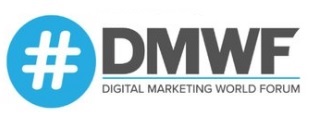
DMWF Whether it is social media intelligence, social media monitoring, or social 2.0; call it what you will, the need for speed and clarity has never been greater to ensure your competition does not rush over the hills and far away.
Take McDonald’s as an example. The company analysed five years’ worth of social mentions and tallied up thousands of requests from customers who couldn’t understand why pancakes were served for lunch. As product launches went, it was a no-brainer.
Social media monitoring tools can help organisations to track brand mentions – and those of their competitors – as well as customer sentiment and trends dominating the market.
This sentiment can also influence how a brand talks to its customers. According to the most recent Salesforce State of Marketing report, published in May, empathy must be a key tool for marketers as greater data and personalisation is attainable.
The ongoing Covid-19 pandemic has also forced a change in thinking on this front. As Daniel Andrews, CEO of agency The Tree, wrote for this publication in June: “By leaning in to the crisis once it was clear that it would not end quickly, and by embracing the unavoidable, brands pulled off some amazing work.”
Writing in April Valeriia Zhyvotova, content manager at YouScan, noted similarly. “Now, more than ever, it’s essential to listen to customers’ online voices, boost social media presence, and revise the core values of the brand,” she wrote. “It’s time for expressing humanity and not advertising.”
Some of the world’s largest organisations have entire teams devoted to the discipline. Speaking to Business Insider, Brian Wright, social media listening and intelligence leader at Wells Fargo, outlined the problems brands needed to solve when it came to judging ROI.
“There are plenty of vanity metrics, but I think it should be a more custom approach that ties into your business goals and outcomes,” said Wright. “For instance, if we are able to take a product to market more effectively because we provided listening insights, that’s a win. If we’re able to help improve certain ad campaigns because we’re using social listening in-flight, or even pre-campaign, it’s going to help ensure that our content is going to be more relevant.”
It is evident, therefore, not to stray into vanity metric territory. Yet it is also important to realise that each brand is different, whether it’s the industry in which they work, the volume and type of user generated content, or the insights required. Wright noted that image-based social listening ‘can work for many brands, but… results weren’t as impactful as [they] hoped.’
But where else can social media intelligence create solid wins? Writing for MarketingTech in January Jean-Philippe Baert, CEO of Mention, explored three key ways social listening can improve customer marketing. Authenticity, frequency, and making the most of negative feedback, Baert noted, was key.
“When social first hit, it was all about sharing to be heard. Today, it’s beyond that,” wrote Baert. “It’s about sharing with a purpose.
“People are sharing their feedback with you and expecting improvements. We all know that change doesn’t happen overnight… so to maintain and continue improving your brand reputation you must address negative feedback in hope of turning it into a positive dialogue. Doing so will help change the narrative of how your brand is perceived online.
“Today’s professionals need to push past just social listening, because everyone is doing it these days,” Baert added. “What sets quality customer marketing apart from the pack is absorbing the insights you’ve learned and allowing them to drive your strategy.”
A sophisticated approach is therefore key. At DMWF Virtual, YouScan will explore why social media intelligence matters, how to use it to improve your marketing, and how world-renowned brands already benefit from it. Find out more about the session here.
Photo by Morgan Housel on Unsplash

Interested in hearing leading global brands discuss subjects like this in person?
Find out more about Digital Marketing World Forum (#DMWF) Europe, London, North America, and Singapore.





